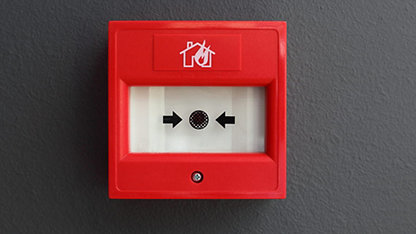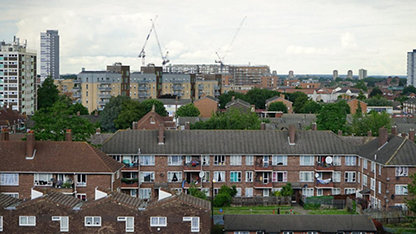This Women’s History Month, we are hearing from women across the profession, with today’s spotlight on women working in dispute resolution in the land, property and construction industries. We sat down with a truly inspiring cohort of surveyors from around the world to find out more about their journey in the profession.
Meet our panel:
Lina Salameh Zureikat LLM, MSc C.E, FCIArb, MRICS, FCIOB, Arbitrator/Construction Claims Specialist (Jordan)
Nurul Sabri AssocRICS, LLB, MCIArb, Senior Consultant, HKA (Qatar)
Rekha Patel MRICS, MCIArb, Project Director, Turner & Townsend (United Arab Emirates)
Ana Maria Olteanu MSc MRICS MCIArb, Project Management Director, Niro Group (Romania)
Janey Milligan FRICS, FCIArb, Managing Director, Construction Dispute Resolution (Scotland)
Ruth M L Farrell MRICS, FAAV, Senior Rural Business Consultant and Arbitrator, DJM Consulting (England)
Claire McCarry MRICS, Associate Director, Quigg Golden (England)
What made you decide to become a surveyor?
Lina: to become a surveyor because this profession plays an integral role in developing and shaping societies and its future. There is something rewarding about the wealth of knowledge you acquire and the personal characteristics this profession cultivates in the individual.
Rekha: I became a Civil Engineer following my father's footsteps, but it was project controls that attracted me towards surveying. Quantity surveying is not just measurements or numbers!
Ana Maria: I consider myself someone who embraces innovations in all fields, not only construction. Being a surveyor gives you the opportunity to see how the result of your work transforms cities, improves lifestyle and protects the environment.
Ruth: I chose a rural surveying course because it gave me a wide range of career options, locations and a good grounding, with scope for specialisation.
How did you get into dispute resolution?
Nurul: I find every dispute arising from construction very interesting — there is always a different story and I learn new things every time. I am especially drawn to the discussions and the feeling of accomplishment that comes with the award.
Ana Maria: My engineering background combined with my native sense of fairness and balance guided me to dispute resolution. This climate has challenged us to be creative when it comes to efficient mechanisms for dispute resolution and dispute avoidance. For me is not only a job, but also a passion.
Janey: When I was working as a Quantity Surveyor, I became acutely aware of how personalities impacted on the success of the construction project. I liked trying to resolve matters and that got me involved in the contractual side of construction.
Claire: I researched the profession when deciding my A’Levels and was drawn to the variety of work that a quantity surveyor might be involved with across the various sectors in the industry, and the fact that it would allow me to work internationally.
What are the challenges and/or opportunities you have encountered being a female surveyor working in dispute resolution?
Nurul: Working in the construction in the Middle East, the primary challenge I faced was the lack of female surveyors, especially ethnic minority female role models and mentors. Fortunately, with the increased awareness of the value that women can bring to the industry, I have seen more opportunities for women.
Rekha: Being in the minority comes with its challenges, be it the non-inclusively designed project site offices/facilities or the perception of female surveyors not being tough enough for the job. But the profession has allowed me to work across a variety of challenging yet rewarding projects in different geographies, interacting with people in multicultural settings.
Janey: In the early 90’s there was a strong view that a woman could not be considered suitable as an arbitrator/dispute resolver. Thanks to some very forward-thinking employers and mentors in my life I ploughed on at the courses and interviews and overcame the obstacles. Now people are seeing that women have a lot of skills to offer but we still have a way to go.
Ruth: To work with professional people at the top of their game and to watch them in action is exciting and great fun. It makes me keener and sharper in my work. I have found the traditions associated with rural surveying challenging for my career at times, more so because I am a woman, but I have found ways around them.
Do you have any advice for women considering a career in surveying?
Lina: I encourage women to pursue a career in surveying and assure them that they can stand out and excel in this profession. I would advise them to turn challenges into opportunities and to remember that persistence can overcome any challenge.
Ana Maria: I encourage women to seek a career in surveying and embrace the challenge. As difficult as it may seem, in particular for a woman in a “men’s world”, as fulfilling and rewarding is the outcome. Have the courage to take this path, load yourself with patience and determination and enjoy the ride!
Janey: Being a chartered surveyor is a great platform to steer your career in many directions. There is no doubt that hard work pays rewards, and sometimes you have to make mistakes to learn and get better.
Ruth: Be curious, ask questions and do not be afraid to approach other surveyors and professionals. Look out for surveying work in other practice types like consultancy, architects and legal firms and work for a firm that will support and encourage you.
Claire: Do your research, know what area it is you want to practice in and go for it! It is a great career that can be expanded throughout your working life to allow for variety, great progression and continued challenge. There are more and more women involved in every aspect of the construction industry and in my experience, there are no limitations as a female surveyor.














